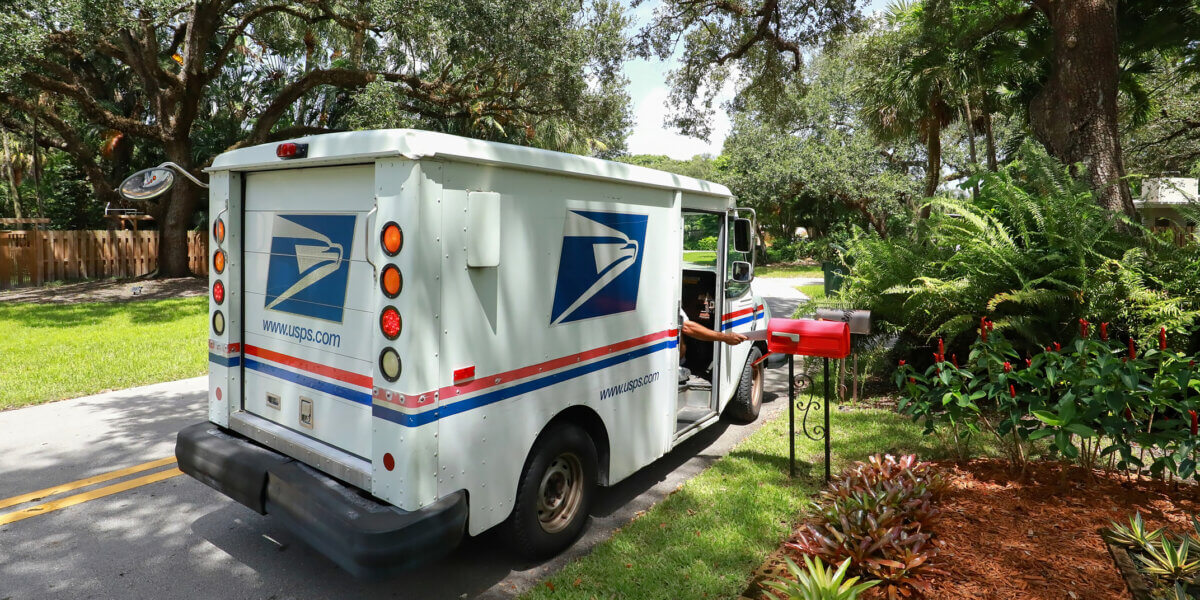Millions of critical drug prescriptions are delayed or lost every day, every year. It’s an unfortunate fact.
But in 2020, amid the current pandemic and the sudden and drastic growth in e-commerce, it has become even worse. Some patients are waiting one, two, even three weeks before receiving their medication. Complaints about delivery delays are reaching all-time highs, with patient medication adherence and satisfaction suffering.
The United States Postal Service manages 1.2 billion prescription drug shipments a year — or about 4 million each day, six days a week, the National Association of Letter Carriers reported earlier this year. That number has only grown during the coronavirus pandemic.
What’s worse, a ParcelShield® study found that the percentage of orders that arrived after the USPS estimated delivery date increased nearly 260 percent, from 8.5 percent of prescription orders in February to 22 percent of prescription orders in July. That is a significant increase in the number of patients not receiving their medication on time. Not knowing when therapies will arrive causes stress and anxiety for patients.
This is the reason we developed ParcelShield® Tracker. Tracker is a parcel intelligence and monitoring service that provides critical package monitoring and patient communication for USPS packages every step of the way. Based on zip codes and trends, the proprietary AI provides expected transit and delivery timeframes. It can’t make the USPS or the pharmacy more efficient, but it can properly set a patient’s expectations.
Here’s how it works: from the pharmacy’s loading dock to a patient’s door, ParcelShield® Tracker uses automated predictive analytics, machine learning, and statistical modeling to track packages that pharmacies ship via USPS.
The bottom line is that delays or disruptions trigger phone calls or text messages to patients to keep them informed throughout the package’s journey. This improves patient satisfaction through proactive communication and reduces pharmacy costs by preventing calls from patients inquiring about their delayed orders’ status.
Home delivery of prescriptions is not new. What is new is keeping close tabs on packages from when the pharmacy ships the therapies until they reach patients’ homes, updating the patient proactively if there is a delay and providing them options if the delay will create a hardship or interruption in their therapy.
More than that, an informed patient and pharmacy are better prepared to take action, such as requesting an emergency fill at a local pharmacy, if they know their medication will not arrive on time. This is more important than ever now that the postal service is experiencing a surge in demand. With ParcelShield® Tracker, patients get better outcomes, and pharmacies safeguard revenue and improve patient satisfaction. It’s a win-win for everyone.
In the past, patients accepted that medications delivered via USPS would often take longer to get to them with little communication along the way. ParcelShield® Tracker changes this. By monitoring each package and notifying the patient at various trigger points in the package journey, patients know when to expect their medication and are notified if that expectation changes.
That’s why pharmacies partner with us. They know how important it is to ensure packages are delivered to patients on time and within budget. It’s all about improving patient satisfaction and cost savings by reducing calls from patients. ParcelShield® can help dramatically improve customer satisfaction scores that are primarily driven by outcomes. When a patient knows when a package will arrive, even if it changes, but they are kept in the loop, they are more likely to be satisfied. In the event a patient does call, ParcelShield® Tracker allows call center agents to view all details of a shipment to better serve and inform the patient.
And if you are shipping via FedEx or UPS, no problem. ParcelShield® offers end-to-end intelligent parcel protection from tracking to intervention to rescue for packages shipped with those carriers as well.


